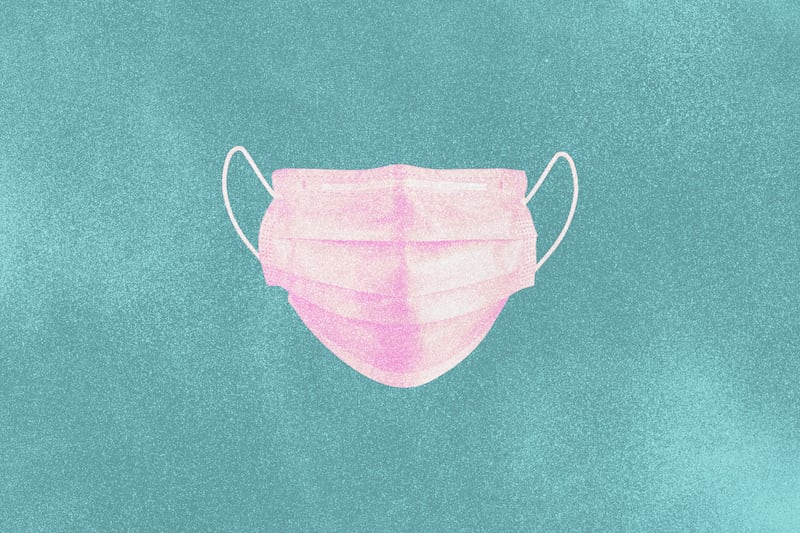A new graphic from The Wall Street Journal offers a clue as to why cloth masks might not stop the omicron variant from spreading.
The graphic — which was shared widely on social media Wednesday — shows how long it takes for someone to get infected with COVID-19 if they’re wearing a certain type of mask and speaking with someone wearing a specific type of mask (or not one at all).
- The graphic includes how long it would take for people wearing nothing, cloth masks, surgical masks and N95 masks to be infected by those wearing the same type of mask.
- In all, the graphic shows that wearing an N95 mask offers the greatest protection. In fact, someone would be protected for 2.5 hours if they wore N95 masks and were talking to someone without a mask at all.
However, the graphic — which comes from 2021— is a clear sign that cloth masks will be less effective than before. The graphic said that the omicron may spread faster and quicker than variants from 2021.
Experts have been talking about this for some time now. For example, Dr. Asha Shajahan, the medical director of Community Health for Beaumont Grosse Pointe in Detroit, told Fox 2 Detroit that cloth masks don’t stop the omicron variant.
- “You want to make sure it’s at least a three layer surgical mask or an N-95 or higher,” she said. “We want to make sure it’s not a cloth mask. A cloth mask does not offer the protection that you need.”
But masks, in general, may not offer enough protection against omicron since it spreads so fast. The WSJ graphic shows that there is little protection over long periods of time. And Dr. William Schaffner, a professor of health policy and infectious diseases at the Vanderbilt University School of Medicine, told Health that omicron produces more of the virus, making it hard for people to stay safe.
- “Omicron produces more virus, even than delta,” Schaffner told Health. “So, the masks’ capacity to interrupt or reduce transmission back and forth is likewise reduced.”


